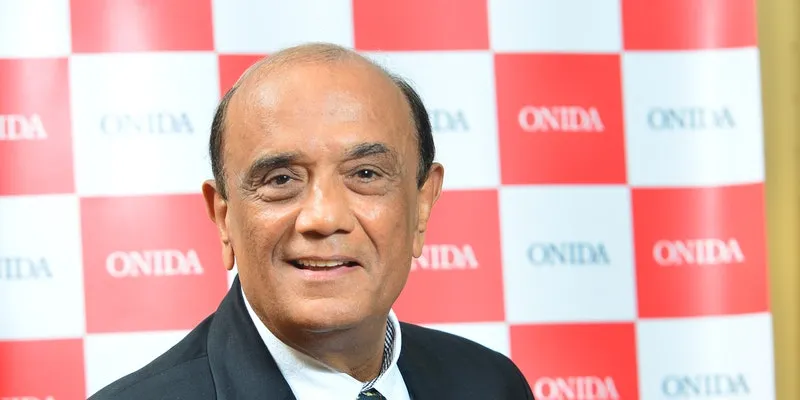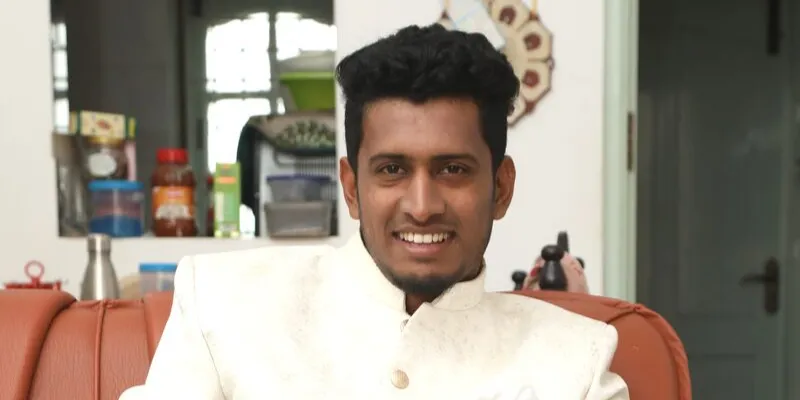These 5 engineers became successful entrepreneurs and gave ‘unemployable’ engineers a blueprint to success
India’s unemployment crisis and unemployable engineers continue to be a grave issue. Yet, there are some engineers that decided to start up instead of searching for a job. And they live to tell their successful tales. Here are five such inspiring stories:

India has been churning out graduate engineers at breakneck speed over the past few years. For many engineers, the objective is a cushy MNC or business job with a fat salary package.
Yet, with no improvement in the employability of these engineering graduates since 2010, according to a 2019 employability report by talent evaluation company Aspiring Minds, the situation isn’t looking great.
The report revealed that currently, 80 percent of engineers are not employable for any job in the knowledge economy.
However, success in today’s small business and startup ecosystem is often not defined by one’s employability, but by disruption and innovation. Several Indian engineers are towing this line with success by starting their own businesses and becoming self-employed. Many have also thrown caution to the wind and quit jobs to pursue unique business ideas.
SMBStory’s curated list of five engineers who turned entrepreneurs explores their journey with small and medium businesses, and how they wrote their own success story:
Vishal Shah - Storia Foods & Beverages

Vishal Shah, Founder and MD, Storia
Vishal Shah’s chemical engineering background opened up opportunities to use technology to disrupt the food industry with innovative products. He wanted to leverage the latest technologies to add ease, create value, and inspire a healthier lifestyle.
He started Storia Foods & Beverages in 2016 with the vision to offer convenience and sustainability and inspire a healthier lifestyle through nutrition-charged products.
Storia deals in four SKUs (stock keeping units), including coconut water, which was its first launch. Then came fresh fruit juices, shakes, and beverage whitener (milk powder).
“The products are developed through an aseptic technique with no preservatives added in the liquid that can be consumed within six months from the date of packaging without refrigeration storage. Our juices and shakes have high fruit content and are packaged in bottles under cold conditions,” he says.
Vishal says in a span of 24 months, Storia was able to enter 52 cities in India, hitting 50,000 outlets in retail. “We recorded a turnover of Rs 23 crore in FY 2018-19,” he adds.
Sumit Agarwal - Vyapar

Sumit Agarwal, Co-founder and CEO, Vyapar
Software engineer Sumit Agarwal identified a business opportunity when he was working for Intuit’s QuickBooks, an accounting software package for small businesses. He saw the need for a player that offered small businesses and MSMEs simplified solutions for accounting and inventory management.
With Rs 8 lakh savings, Sumit started Vyapar in 2016. It is a simple business accounting and inventory management application for small businesses.
“By using Vyapar, an entrepreneur can stay on top of his/her finances, collect payments on time, keep track of inventory, generate GST reports, and make smarter business decisions,” Sumit tells SMBStory.
Today, the app is available for smartphones and desktops, and has been downloaded by over one million MSMEs. Sumit’s business has also reached Rs 3 crore annual revenue.
“In today’s day and age, it is imperative that Indian MSMEs go digital. Using a simple software like Vyapar to manage billing, stock inventory, receivables, and payables helps Indian MSMEs stay on top of their business,” he says.
Vijay Mansukhani - Onida

Vijay Mansukhani, Cofounder and MD, Onida
In the 1970s, marine engineer Vijay Mansukhani was working in the Iranian merchant navy. As a man who was just starting his career, he was happy earning approximately six times the salary that Indians in the merchant navy were earning.
When he met his to-be business partner Gulu Mirchandani, his life’s trajectory changed. Vijay decided to jump ship and become an entrepreneur. Leaving behind a well-paying job was risky. But little did Vijay know that he and his partner would go on to redefine the Indian consumer durables industry with their iconic ‘Onida’ brand of TVs.
“We had started the company when the Asian Games took place in Delhi. The late PM Indira Gandhi had just opened the floodgate of opportunity by announcing national telecast and colour television around that time,” he says.
In an incredible tale of perseverance, battling adverse economic conditions, and facing stiff competition from foreign companies, Onida emerged triumphant. It became a household name as lakhs of Indians were buying their first TVs, and choosing Onida.
Over the years, there were many challenges, but Vijay authoritatively led Onida to become a Rs 736 crore turnover company.
Ajay Kumar Jaiswal - Urja Gasifiers

Ajay Kumar Jaiswal (right), Founder, Urja Gasifiers
Ajay Kumar Jaiswal started Urja Gasifiers to produce renewable energy and provide energy-efficient and eco-friendly products to customers. An engineer and a technocrat, he started the company in 2013 in Gorakhpur, Uttar Pradesh.
In a short span, Jaiswal says the company established itself in the field of renewable energy and pollution control and was known for its quality of manufacturing, performance and after sales service.
However, things changed when he diversified and started manufacturing cremation systems. Jaiswal says, “My focus shifted to developing cremation systems through years of research. It is now patented and is gaining acceptance among the Hindu community as it takes care of their religious and spiritual beliefs.”
He says the market size of the cremation system in India is more than Rs 5,000 crore and Urja differentiates itself from competitors in terms of its technology, quality, and price.
Today, the business has an annual turnover of more than Rs 1.25 crore.
Zubair Rahman - The Fashion Factory

Zubair Rahman, Founder, The Fashion Factory
Electrical and electronics engineering graduate Zubair Rahman worked as a CCTV operator at Tirupur in Tamil Nadu, when he got a request to install CCTVs in the office of an ecommerce company.
Zubair recalls, “I went to install the CCTVs and got curious about the operations of the company. I spoke to the manager there, and he told me how the company was making money by sourcing and selling items online.”
The idea appealed to Zubair. He didn’t have to invest heavily in manufacturing if he started an ecommerce marketplace. Zubair realised textiles were the best products he could source from Tirupur.
He quit his job and in 2015, invested just Rs 10,000 to start The Fashion Factory at his home.
Zubair found a unique strategy for selling kids apparel in combo packs, and it worked so well that The Fashion Factory now receives 200 to 300 orders a day. By fulfilling these orders, Zubair’s company rakes in around Rs 50 lakh revenue each month, he claims.









